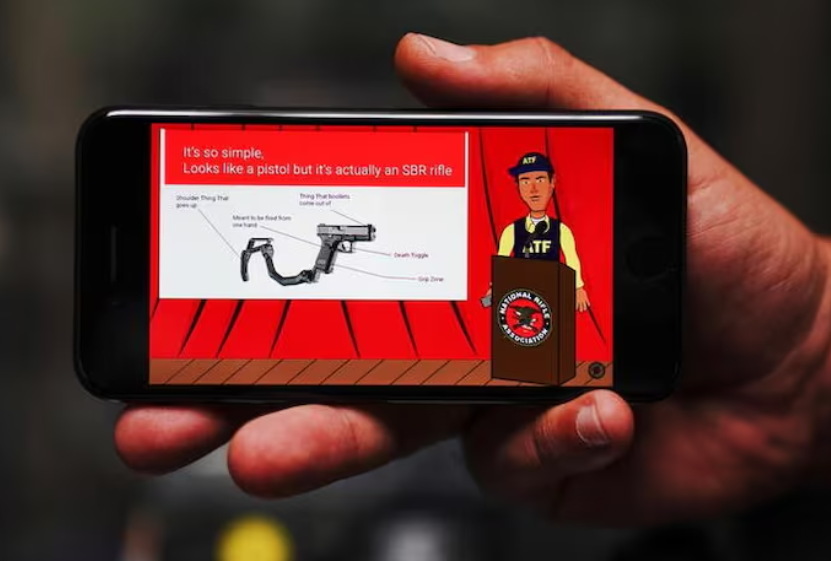A federal appeals court on Friday ruled that a U.S. regulation restricting ownership of pistol braces is likely illegal. The 2-1 panel of the 8th U.S. Circuit Court of Appeals determined that a challenge to the rule by 25 Republican state attorneys general and others is likely to succeed. The court found that the Bureau of Alcohol, Tobacco, Firearms, and Explosives (ATF) did not clearly define what products would be covered by the rule, rendering it arbitrary and capricious.
This decision aligns with a similar conclusion reached by the 5th Circuit in a case brought by gun rights groups, which led U.S. District Judge Reed O’Connor in Fort Worth, Texas, to vacate the rule.
West Virginia Attorney General Patrick Morrisey, who led the challenge for the states, expressed satisfaction with the ruling, calling the regulation “egregious” and an attempt to undermine Americans’ Second Amendment rights. The ATF declined to comment on the decision, and a lawyer for the other plaintiffs, including the Firearms Regulatory Accountability Coalition and gun accessory company SB Tactical, did not immediately respond to requests for comment.
Pistol braces, first marketed in 2012, were designed to attach to a pistol and stabilize it for use by disabled individuals. Richard Cicero, a disabled army veteran, is also a plaintiff in the case. However, the ATF introduced the rule in January 2023 after reports emerged that some users were repurposing the brace to rest against their shoulders, similar to a rifle stock.
The rule classifies guns with braces designed for shoulder shooting as short-barrel rifles, which require special registration, longer waiting periods for purchase, and higher taxes compared to handguns. The ATF stated that the rule does not apply to braces “objectively designed and intended … for use by individuals with disabilities.”
The states and other plaintiffs sued the ATF in February 2023. Initially, U.S. District Judge Daniel Hovland in North Dakota declined to block the rule, believing the ATF had sufficiently explained its rulemaking process. However, Circuit Judge L. Steven Grasz wrote on Friday that the ATF’s multi-factor test for evaluating braces, which considers design, marketing, and community use, was arbitrary and capricious because it allowed the ATF to reach any conclusion it wanted. The panel ordered Hovland to reconsider his decision.
Circuit Judge Raymond Gruender joined Grasz in the ruling, while Circuit Judge Bobby Shepherd dissented, arguing that the panel should have upheld Hovland’s order, as there was no need for a preliminary injunction after O’Connor vacated the rule. All three judges were appointed by Republican presidents.
The case is Firearms Regulatory Accountability Coalition et al v. Garland et al, 8th Circuit U.S. Court of Appeals, No. 23-3230.

